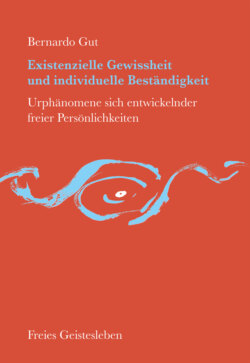Читать книгу Existenzielle Gewissheit und individuelle Beständigkeit - Bernardo Gut - Страница 6
ОглавлениеURPHÄNOMENE DER RECHTSSPHÄRE I
Grundlagen, relative und absolute Rechte
Verissimum illud, omnia incerta esse,
simul a iure recessum est. –
Wahr in höchstem Maße ist dies,
dass alles unsicher ist,
sobald vom Recht abgewichen wird.
Hugo Grotius1
Abstract
Are there any a priori laws in the Legal Sphere, in other words: fundamental phenomena solely inherent to the Realm of Rights and Justice which are completely independent of the prevailing external power relations? Taking up the ground-breaking investigations of Adolf Reinach (23.12.1883 – 16.11.1917), the following applies with respect to relative rights:
1. There exist, indeed, legal structures complying to essentially intrinsic laws which remain independent of external influences, and, above all, are unaffected by any kind of arbitrariness.
2. In the case of a relative legal structure beginning with a promise and leading to a contract, the latter’s validity rests on a social act encompassing the following steps:
a) The person who has decided to promise something to another individual must express either verbally or in writing, what he is willing to promise;
b) The addressee must learn, i.e. become aware of the expressed promise, and understand it.
3. The addressee’s claim – or rather, the liability assumed by him who promised, can be discharged in two ways:
a) If he who made the promise, has kept it;
b) If the addressee renounces to the fulfilment of his claim.
4. When the addressee renounces his claim, he asserts an absolute right – there being nothing equivalent to it on the side of him who bound himself with his promise. From a psychological viewpoint, he who renounces dissolves the relation he had tied on behalf of the promise, whereas he who meets the claim lifts, i.e. cancels with the fulfilment the relation.
5. The actual legal validity of a promise or a contract does also depend on its real content: it can be reduced in scope or completely abolished on two grounds:
a) If the content of the promise or contract stands in overt contradiction to the acknowledged fundamental principles of law and – or rather – does not respect the ethical conventions the community in question unanimously holds to be basic.
b) If the positive, established law of a community of rights contains determinative regulations, which prevent that certain formal a priori or material implications be derived from a promise or a contract that has come about.
6. Looking at what has been referred to in points 4. and 5., we are consequently led to a further fundamental legal phenomenon – that it is neither feasible to adequately consider a concrete promise nor to judge correctly a definite contract without taking into account the entire Realm of Rights and Justice they are embedded in.
7. The fundamental phenomena I have dealt with are of a strictly a priori nature, but they concern only relative legal structures – insofar as they entail a content of positive social character. In stark contrast to this quality, I have also hinted at the absolute right to renounce a claim, which offers a remarkable example of a fundamental legal phenomenon the content of which comprehends a clearly negative social character. This finding raises two questions:
(i) Can we conceive absolute rights having a content with a definitely positive social character?
We have furthermore seen that if promises and contracts are to be accepted and be valid in a given legal community, their real content has to be in accordance with certain legal principles and ethical views the community considers to be essential. This carries us to a second question:
(ii) Providing that we conceive the human individual as a putative personality rooted in a potentially perennial individuality, wherefrom it emerges, develops, and progresses – can we then establish absolute legal structures, essential for an individual person, which are completely independent of the various, mutually differing legal communities?
These questions open a vast field of investigations I’m partly outlining in the following two essays.
